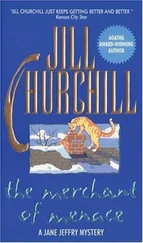Winston Churchill - Ian Hamilton's March
Здесь есть возможность читать онлайн «Winston Churchill - Ian Hamilton's March» весь текст электронной книги совершенно бесплатно (целиком полную версию без сокращений). В некоторых случаях можно слушать аудио, скачать через торрент в формате fb2 и присутствует краткое содержание. Год выпуска: 2018, Издательство: epubBooks Classics, Жанр: История, Прочая документальная литература, на английском языке. Описание произведения, (предисловие) а так же отзывы посетителей доступны на портале библиотеки ЛибКат.
- Название:Ian Hamilton's March
- Автор:
- Издательство:epubBooks Classics
- Жанр:
- Год:2018
- ISBN:нет данных
- Рейтинг книги:4 / 5. Голосов: 1
-
Избранное:Добавить в избранное
- Отзывы:
-
Ваша оценка:
- 80
- 1
- 2
- 3
- 4
- 5
Ian Hamilton's March: краткое содержание, описание и аннотация
Предлагаем к чтению аннотацию, описание, краткое содержание или предисловие (зависит от того, что написал сам автор книги «Ian Hamilton's March»). Если вы не нашли необходимую информацию о книге — напишите в комментариях, мы постараемся отыскать её.
London to Ladysmith
Ian Hamilton's March — читать онлайн бесплатно полную книгу (весь текст) целиком
Ниже представлен текст книги, разбитый по страницам. Система сохранения места последней прочитанной страницы, позволяет с удобством читать онлайн бесплатно книгу «Ian Hamilton's March», без необходимости каждый раз заново искать на чём Вы остановились. Поставьте закладку, и сможете в любой момент перейти на страницу, на которой закончили чтение.
Интервал:
Закладка:
Now, what does this mean? It means, I take it, that no direct advance against the Biggarsburg is intended for some time; and as the idea of reducing the Natal Army to reinforce the Cape Colony forces has been definitely abandoned the western line of advance suggests itself.
It would be absurd to force Van Reenen's Pass with heavy loss of life, when by waiting until the main Army has reached, let us say, Kroonstad, we could walk through without opposition; so that it looks very likely that the Natal troops will do nothing until Lord Roberts's advance is more developed, and that then they will enter the Free State and operate in conjunction with him, all of which is strategy and common–sense besides. At any rate there will be a long delay.
Therefore, I said to myself, I will go to Bloemfontein, see all that may be seen there and on the way, and rejoin the Natal Army when it comes through the passes. Such was the plan, and the reader shall be a witness of its abandonment.
I left the camp of Dundonald's Brigade early in the morning of the 29th of March, and riding through Ladysmith, round the hill on which stands the battered convent, now serving as headquarters, and down the main street, along which the relieving Army had entered the city, reached the railway station and caught the 10 A.M. down train.
We were delayed for a few minutes by the departure for Elandslaagte of a train load of Volunteers, the first to reach the Natal Army, and the officers hastened to look at these citizen soldiers. There were five companies in all, making nearly a thousand men, fine looking fellows, with bright intelligent eyes, which they turned inquiringly on every object in turn, pointing and laughing at the numerous shell holes in the corrugated iron engine sheds and other buildings of the station.
A few regulars—sunburnt men, who had fought their way in with Buller—sauntered up to the trucks, and began a conversation with the reinforcement. I caught a fragment: 'Cattle trucks, are they? Well, they didn't give us no blooming cattle trucks. No, no! We came into Ladysmith in a first–class doubly extry Pullman car. 'Oo sent 'em? Why, President ― Kruger, of course,' whereat there was much laughter.
I must explain that the epithet which the average soldier uses so often as to make it perfectly meaningless, and which we conveniently express by a ―, is always placed immediately before the noun it is intended to qualify. For instance, no soldier would under any circumstances say '― Mr. Kruger has pursued a ― reactionary policy,' but 'Mr. ― Kruger has pursued a reactionary ― policy.' Having once voyaged for five days down the Nile in a sailing boat with a company of Grenadiers, I have had the best opportunities for being acquainted with these idiomatic constructions, and I insert this little note in case it may be useful to some of our national poets and minstrels.
The train started across the well–known ground, and how fast and easily it ran. Already we were bounding through the scrub in which a month before Dundonald's leading squadrons, galloping in with beating hearts, had met the hungry picket line.
Intombi Spruit hospital camp was reached in a quarter of an hour. Hospital camp no longer, thank goodness! Since the bridge had been repaired the trains had been busy, and two days before I left the town the last of the 2,500 sick had been moved down to the great hospital and convalescent camps at Mooi River and Highlands, or on to the ships in the Durban Harbour. Nothing remained behind but 100 tents and marquees, a stack of iron cots, the cook houses, the drinking–water tanks, and 600 graves. Ghastly Intombi had faded into the past, as a nightmare flies at the dawn of day.
We sped swiftly across the plain of Pieters, and I remembered how I had toiled across it, some five months before, a miserable captive, casting longing eyes at the Ladysmith balloon, and vigilantly guarded by the Boer mounted escort. Then the train ran into the deep ravine between Barton's Hill and Railway Hill, the ravine the Cavalry had 'fanned' on the day of the battle, and, increasing its pace as we descended towards the Tugela, carried us along the whole front of the Boer position. Signs of the fighting appeared on every side. Biscuit tins flashed brightly on the hill–side like heliographs. In places the slopes were honey–combed with little stone walls and traverses, masking the sheltering refuges of the Infantry battalions during the week they had lain in the sun–blaze exposed to the cross–fire of gun and rifle. White wooden crosses gleamed here and there among the thorn bushes. The dark lines of the Boer trenches crowned the hills. The train swept by—and that was all.
I knew every slope, every hillock and accident of ground, as one knows men and women in the world. Here was good cover. There was a dangerous space. Here it was wise to stoop, and there to run. Behind that steep kopje a man might scorn the shrapnel. Those rocks gave sure protection from the flanking rifle fire. Only a month ago how much these things had meant. If we could carry that ridge it would command those trenches, and that might mean the hill itself, and perhaps the hill would lead to Ladysmith. Only a month ago these things meant honour or shame, victory or defeat, life or death. An anxious Empire and a waiting world wanted to know about every one of them—and now they were precisely what I have said, dark jumbled mounds of stone and scrub, with a few holes and crevices scratched in them, and a litter of tin–pots, paper, and cartridge cases strewn about.
The train steamed cautiously over the temporary wooden bridge at Colenso and ran into the open country beyond. On we hurried past the green slope where poor Long's artillery had been shot to bits, past Gun Hill, whence the great naval guns had fired so often, through Chieveley Camp, or rather through the site of Chieveley Camp, past the wreck of the armoured train—still lying where we had dragged it with such labour and peril, just clear of the line—through Frere and Estcourt, and so, after seven hours' journey, we came to Pietermaritzburg.
An officer who was travelling down with me pointed out the trenches on the signal hill above the town.
'Seems queer,' he said, 'to think that the Boers might so easily have taken this town. When we dug those trenches they were expected every day, and the Governor, who refused to leave the capital and was going to stick it out with us, had his kit packed ready to come up into the entrenchments at an hour's notice.'
It was very pleasant to know that those dark and critical days were gone, and that the armies in the field were strong enough to maintain the Queen's dominions against any further invasion; yet one could not but recall with annoyance that the northern part of Natal was still in the hands of the enemy. Not for long, however, shall this endure.
After waiting in Pietermaritzburg long enough only to dine, I proceeded by the night train to Durban, and was here so fortunate as to find a Union boat, the Guelph , leaving almost immediately for East London. The weather was fine, the sea comparatively smooth, and the passengers few and unobtrusive, so that the voyage, being short, might almost be considered pleasant.
The captain took the greatest interest in the war, which he had followed with attention, and with the details and incidents of which he was extraordinarily familiar. He had brought out a ship full of Volunteers, new drafts, and had much to say concerning the British soldier and his comrades in arms.
The good news which had delighted and relieved everyone had reached him in the most dramatic and striking manner. When they left England Roberts had just begun his welcome advance, and the public anxiety was at its height. At Madeira there was an English cable to say that he was engaging Cronje, and that no news had arrived for three days. This was supplied, however, by the Spanish wire, which asserted with circumstantial details that the British had been heavily defeated and had fled south beyond the Orange River. With this to reflect on they had to sail. Imagine the doubts and fears that flourished in ten days of ignorance, idleness, and speculation. Imagine with what feelings they approached St. Helena. He told me that when the tug–boat came off no man dared hail them for news. Nor was it until the launch was alongside that a soldier cried out nervously, 'The war, the war: what's happened there!' and when they heard the answer, 'Cronje surrendered; Ladysmith relieved,' he said that such a shout went up as he had never heard before, and I believed him.
Читать дальшеИнтервал:
Закладка:
Похожие книги на «Ian Hamilton's March»
Представляем Вашему вниманию похожие книги на «Ian Hamilton's March» списком для выбора. Мы отобрали схожую по названию и смыслу литературу в надежде предоставить читателям больше вариантов отыскать новые, интересные, ещё непрочитанные произведения.
Обсуждение, отзывы о книге «Ian Hamilton's March» и просто собственные мнения читателей. Оставьте ваши комментарии, напишите, что Вы думаете о произведении, его смысле или главных героях. Укажите что конкретно понравилось, а что нет, и почему Вы так считаете.











